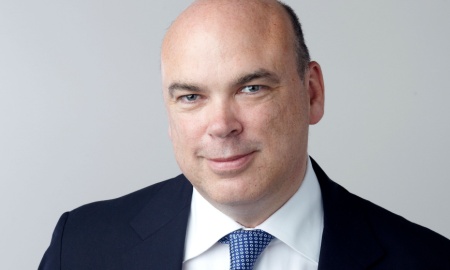Sign up for our free daily newsletter
YOUR PRIVACY - PLEASE READ CAREFULLY DATA PROTECTION STATEMENT
Below we explain how we will communicate with you. We set out how we use your data in our Privacy Policy.
Global City Media, and its associated brands will use the lawful basis of legitimate interests to use
the
contact details you have supplied to contact you regarding our publications, events, training,
reader
research, and other relevant information. We will always give you the option to opt out of our
marketing.
By clicking submit, you confirm that you understand and accept the Terms & Conditions and Privacy Policy
The career of British tech entrepreneur Mike Lynch, whose death was confirmed yesterday (22 August), was closely linked to the legaltech sector and, in recent years, dominated by an epic legal battle on both sides of the Atlantic sparked by the sale of his tech business Autonomy to Hewlett Packard in 2011.
Lynch and some of his close advisers, including Clifford Chance partner Christopher Morvillo, had been celebrating his acquittal by a US federal jury of fraud charges when his luxury yacht Bayesian sank in the early hours of Monday morning during a freak storm.
The seven victims of the tragedy were Lynch, his 18-year-old daughter Hannah, Morvillo and his wife Neda, Morgan Stanley International bank chairman Jonathan Bloomer and his wife Judy, and chef Recaldo Thomas, the only crew member to die.
Lynch was widely celebrated for founding Autonomy, a leader in business data analytics, which became one of Britain’s most heralded tech successes when it was sold to Hewlett-Packard (HP) for $11bn.
Autonomy was notable for purchasing several litigation support businesses for multi-million-pound sums, among other acquisitions. His legal challenges began when HP accused Autonomy’s management of financial misconduct to inflate the company’s value pre-acquisition. This led to investigations by the UK Serious Fraud Office and the US Department of Justice.
The transaction also plunged Lynch into a protracted UK legal battle involving allegations of accounting fraud, following HP’s write-off of $8.8bn of its value in November 2012.
The UK litigation raised complex issues about the liability of listed companies for alleged misstatements in public filings, as well as breach of fiduciary duty and contract and misrepresentation.
A 33-week trial was heard in the Chancery Division of the High Court from March 2019 to January 2020 which saw HP’s case substantially upheld. Clifford Chance advised alongside a team of counsel led by Robert Miles KC of 4 Stone Buildings.
Judgment was handed down in May 2022. The quantum phase of the proceedings saw HP adjust its claim to $4bn in February 2024, which Lynch strongly contested. Proceedings in this case were ongoing, as was a potential appeal led by Lord Wolfson KC of One Essex Court. The future of that litigation is uncertain.
In 2019, meanwhile, the US government had asked the UK to extradite Lynch to face 15 charges of securities fraud, wire fraud and conspiracy charges, leading to extensive legal proceedings. Lynch was represented by Alex Bailin KC of Matrix Chambers with a 2023 ruling by the High Court rejecting his appeal against extradition.
Lynch posted a £100m bond and was subject to house arrest in San Francisco. However, in June, a jury in the US Federal Court for the Northern District of California dramatically found him and his co-defendant Stephen Chamberlain, who died in a traffic accident last weekend, not guilty of the charges.
Earlier this month, Lynch told BBC Radio 4 that though he was convinced of his innocence, he could only prove it in a US court because he was rich enough to pay the enormous legal fees involved in securing his acquittal.
Born in Ilford, East London, and having grown up near Chelmsford in Essex, Lynch’s path led him from a scholarship at Bancroft’s School to Christ’s College, Cambridge, where he delved into natural sciences and completed a PhD in signal processing before venturing into technology.
Lynch established Cambridge Neurodynamics, a firm specialising in using computer-based detection and fingerprint recognition, before founding Autonomy. The innovative use of machine learning and pattern recognition technologies characterised Lynch’s work at Autonomy.
Lynch – later a non-executive director of the BBC – was appointed to a UK government council for science and technology in 2011 by the Coalition government led by Prime Minister David Cameron.
Post-Autonomy, he invested in Invoke Capital, an early backer of UK cybersecurity firm Darktrace in 2013, of which he was a board member until recently. A spokesperson for Darktrace described Lynch as an “active champion” of the UK’s technology sector.
He was also a founding investor in the contract review company Luminance. In a statement, Luminance said: “Mike was one of the brightest minds the technology sector has ever seen, a pioneer in artificial intelligence, and a staunch believer in Luminance. He will be deeply missed by many.”
Harry Borovick, general counsel of Luminance, said in tribute: “Mike was an unwavering and staunch supporter of our team”, adding that “each of the people who started and worked in the countless successful businesses he built would all feel the same. [Tens of thousands] of people had their first jobs, and their career successes in business he spotted were ‘the future’. The future is poorer for not having him in it”.
Email your news and story ideas to: [email protected]


1.jpg)



